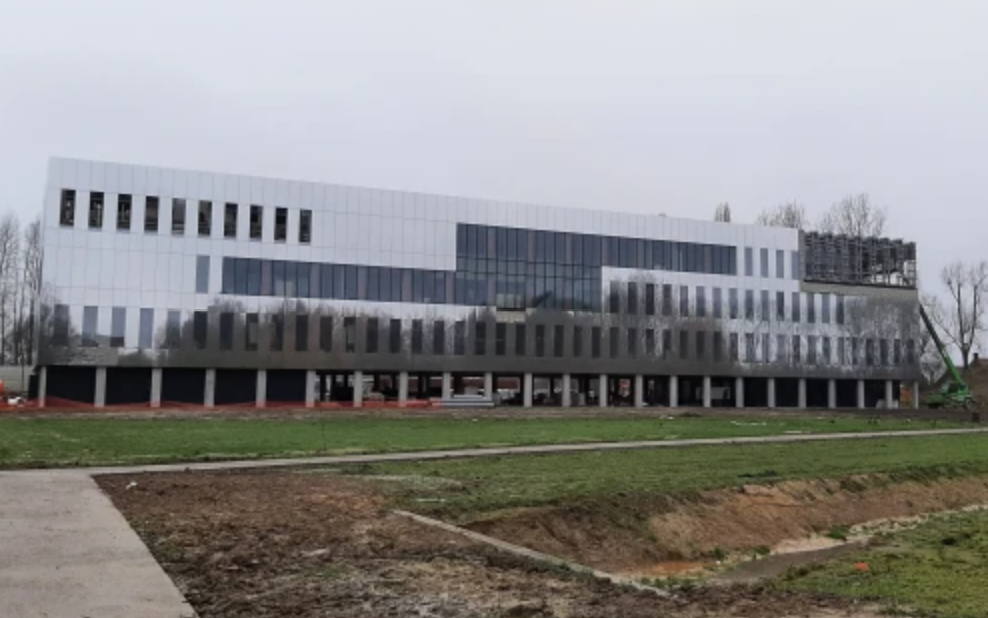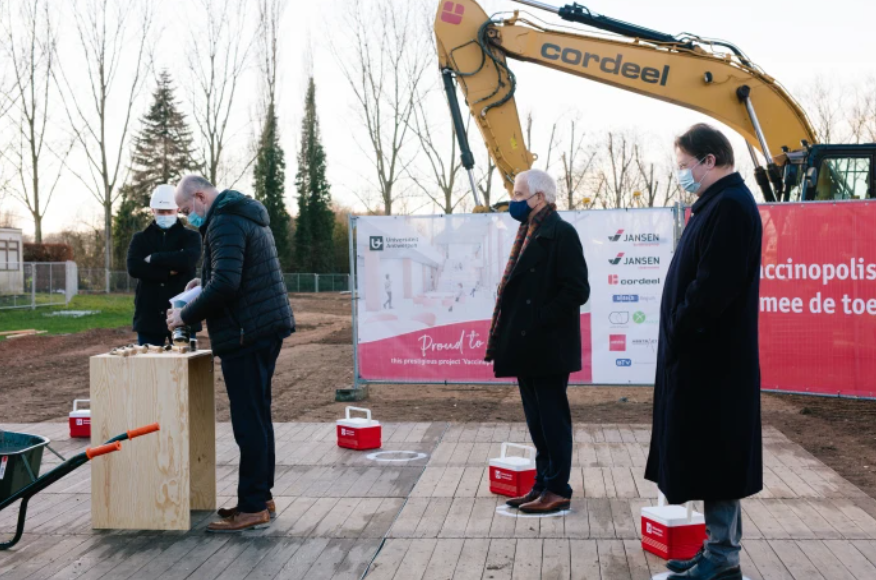A new centre dedicated to vaccine studies and infectious disease research opened on Friday at the University of Antwerp’s Drie Eiken campus.
Called Vaccinopolis, the ultramodern centre aims to accelerate the development of vaccines and therapeutics by offering the possibility to observe participants after pathogen exposure for longer periods of time.
A multidisciplinary team with over 35 years of experience aims to contribute to the evaluation of candidate vaccines and commercialised vaccines against epidemic and endemic pathogens, the need for which was never more greatly highlighted than during the Covid-19 pandemic.
“Vaccinopolis offers a unique flexibility to perform just about any kind of vaccine research and provides the possibility to perform both ambulatory and contained studies at the same time,” the university said in a statement.
“We are convinced that this unit can greatly accelerate the development and evaluation of vaccine candidates.”
A high-tech centre with top-tier staff
Vaccinopolis has been built according to the strictest safety standards to guarantee the safety of the participants, the staff and the environment at all times, the university says.

Photo from University of Antwerp.
Their team has been working in vaccine studies and infectious disease research since 1984, conducting over 500 national and international clinical vaccine studies with vaccines against various pathogens, including Hepatitis B virus, polio, influenza, Dengue, HPV and Covid-19.
Now, in unique 6000-square-metre clinical infrastructure strategically located in Antwerp, they’ll be able to do so using 30 individual containment rooms, a department for outpatient vaccine studies and fully equipped labs.
Related News
- Belgium's hoped-for herd immunity against Covid 'not possible,' says expert
- EMA recommends AstraZeneca's second Covid vaccine Evusheld
“The world really needs this infrastructure,” said founder and vaccinologist Pierre Van Damme (UAntwerpen), explaining that developing vaccines is one of the biggest global challenges today.
“Covid has very much made us face the facts. But this realisation has been there for some time. The climate is changing, people are living closer together, we are travelling more and more, and we are getting older: all evolutions that contribute to a faster and wider spread of viruses.”
Plans for centre existed prior to pandemic
The University of Antwerp had been nurturing plans to set up an innovative vaccine centre for some time, but the Covid-19 pandemic accelerated the process and prompted the federal government to invest €20 million in the establishment of a European anti-infection unit, with specialised infrastructure in Antwerp (at the University of Antwerp) and in Brussels (at the Université Libre de Bruxelles).
Vandaag is het zover, de opening van #Vaccinopolis. Neem een kijkje in het unieke vaccinonderzoekscentrum via onderstaande link. #bepaalmeedetoekomsthttps://t.co/GQXn5EED35
— UAntwerpen (@UAntwerpen) March 25, 2022
Private partners are also making contributions.
“Normally the realisation of such a project takes four to five years,” said Kevin De Hainaut (Cordeel).
“But the circumstances are exceptional: Covid-19 proves that viruses can strike quickly and unexpectedly. All project partners joined forces to drastically shorten the lead time.”

